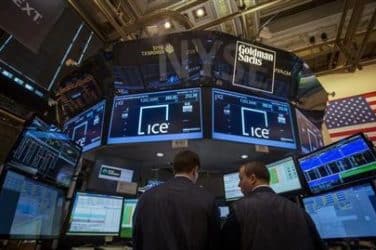
U.S. securities regulators are pushing to complete the final phases of Dodd-Frank Act rulemaking ahead of the end of year deadline that was originally imposed by the G20 back in 2009.
“December 31, 2012 is the date that the G20 committed to clearing of standardized swaps,” said Ananda Radhakrishnan, director of the division of clearing and intermediary oversight at the Commodity Futures Trading Commission, during a panel discussion at an industry event sponsored by Markit in New York on May 31.
“The CFTC will meet that commitment,” Radhakrishnan said.
Among the major items remaining on the regulators’ docket related to OTC derivatives are definitions of swaps, determinations of clearing requirements, and issues of territoriality.
In April, the CFT and SEC published final rules defining the terms “swap dealer,” “security-based swap dealer,” “major swap participant,” and major security-based swap participant.”
Under the rules, for credit default swaps that are security-based swaps, the de minimis exception in general is available to persons who enter into up to $3 billion in notional CDS dealing transactions over the prior 12 months. The proposed rule had set forth an across-the-board $100 million notional threshold.
The new de minimis rule will be phased in over time depending on the level of security-based swap dealing activity.
For credit default swaps, only those entities and individuals who transact $8 billion or more worth of CDS dealing transactions over the prior 12 months initially have to register as security-based swap dealers.
The SEC is working on an “implementation roadmap” as well as “rules of the road” on cross-border issues, said Christine Sibille, senior special counsel at the SEC, during the Markit panel discussion.
The CFTC is preparing to release a final rule to define the terms “swap” and “security-based swap,” the second of the two key joint further definition rules with the SEC.
CFTC staff has put forth to the Commission a final rule for consideration, CFTC chairman Gary Gensler told Congress on May 22.
“We are working assiduously to come up with a foal rule, although we don’t yet have a definite date,” said Radhakrishnan.
The Dodd-Frank Act divides regulatory authority over swap agreements between the CFTC and SEC.
The SEC has regulatory authority over “security-based swaps,” which are defined as swaps based on a single security or loan or a narrow-based group or index of securities, or events relating to a single issuer or issuers of securities in a narrow-based security index.
The CFTC regulates credit default swaps on broad-based security indices, while the SEC regulates them on narrow-based security indices (as well as credit default swaps on single name securities or loans).
The CFTC staff is preparing recommendations on clearing requirement determinations. The Commission’s first determinations will be put out for public comment this summer and hopefully completed this fall, said Gensler.
They will begin with key interest rate products, as well as a number of CDX and iTraxx credit default swap indices. There is a great deal of consistency among the major jurisdictions on the clearing requirement, and the CFTC’s timeframe broadly aligns with both Japan and Europe.
Currently, clearing exists for much of the standardized interest rate swaps, as well as for credit default swap indices, done between dealers. The major clearinghouses providing swaps clearing are registered with the CFTC.
Moving forward, the Commission will consider a final rule on the implementation phasing of the clearing requirement and the end-user exception related to non-financial companies.
“We have proposed that the first group that would have to comply with the clearing determination are swap dealers and major swap participants,” said Radhakrishnan.





